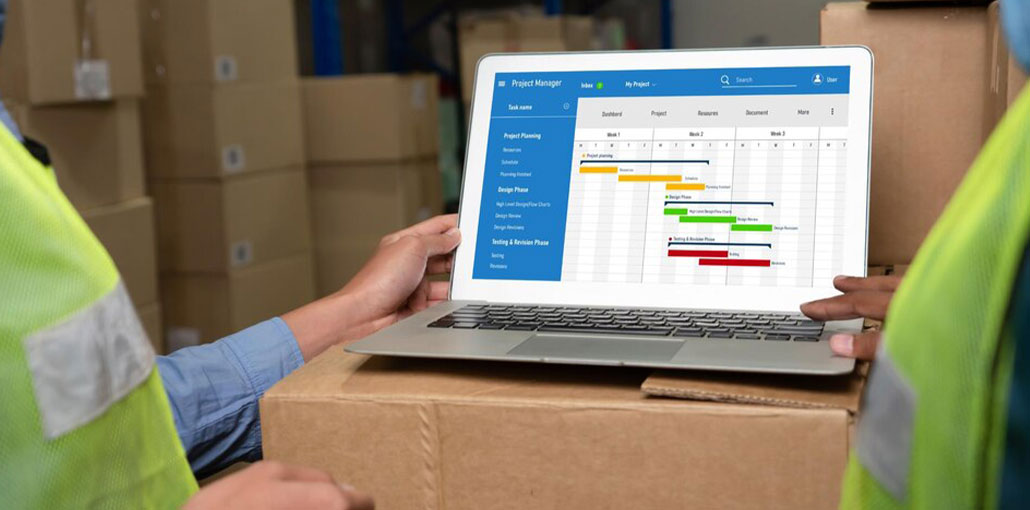In today’s fast-paced business world, making informed decisions based on accurate data is the key to success. Logistics and shipping operations require careful analysis and optimization, which is where business and shipping analytics come into play. These powerful tools provide valuable insights that can drive efficiency, streamline processes, and ultimately boost profitability. In this article, we will delve into the fascinating world of business and shipping analytics, highlighting why it is crucial for modern-day businesses to embrace this technology.
The Art of Data-driven Logistics
In the digital age, the abundance of data can be both a blessing and a curse. However, with advanced analytics, businesses can transform this data into a valuable asset. Shipping analytics, in particular, allows companies to gain a competitive edge in logistics by uncovering trends, patterns, and opportunities for optimization.
Streamlining Supply Chain Efficiency
Efficient supply chain management is essential for the success of any business. Supply chain analytics can optimize every stage of the supply chain, from procurement to delivery. By analyzing data and identifying areas for improvement, businesses can ensure smooth operations, minimize delays, and satisfy customers.\
Also read: How Does Logistics Add Value To The Supply Chain?
Unveiling Hidden Cost Savings
Shipping costs can significantly impact profits if not managed effectively. Logistics analytics plays a vital role in identifying cost-saving opportunities. Through route optimization, carrier selection, and consolidation strategies, businesses can achieve substantial savings and improve their bottom-line performance.
Enhancing Customer Experience
Delivering exceptional customer experience is crucial for business success. Shipping analytics enables businesses to provide accurate delivery estimates, reduce shipping errors, and establish proactive communication throughout the shipping process. This enhances customer satisfaction and strengthens brand loyalty.
Real-time Tracking and Visibility
Gone are the days of uncertainty regarding the whereabouts of shipments. Shipping analytics offers real-time tracking and visibility, allowing businesses and customers to monitor shipments, anticipate delays, and ensure seamless operations. This level of transparency builds trust and improves operational efficiency.
Predictive Analytics: Anticipating and Adapting
Predictive analytics is a game-changer in logistics. By analyzing historical data, shipping analytics can anticipate demand patterns, identify potential bottlenecks, and enable businesses to make data-driven decisions. This proactive approach optimizes resources, minimizes disruptions, and keeps businesses ahead of the curve.
Risk Management and Compliance
Navigating the complex landscape of regulations and compliance is a challenge for businesses. Optimization analytics can assist in risk management by ensuring adherence to regulatory requirements. By leveraging data analytics, businesses can mitigate potential legal and financial pitfalls, ensuring smooth and compliant operations.
The Technology Behind Shipping Analytics
Shipping analytics is powered by cutting-edge technology. Machine learning, artificial intelligence, and big data processing form the foundation of this technology. Understanding the role of these technologies in revolutionizing business logistics is crucial for unlocking the full potential of shipping analytics.
The Role of Big Data in Shipping Analytics
In today’s data-rich environment, big data plays a pivotal role in business, especially when it comes to analytics. Massive volumes of information are collected, processed, and analyzed to extract meaningful insights. This data-driven approach enables businesses to make informed decisions, improve operational efficiency, and drive strategic growth.
Also read: 10 Shipping Factors That Affect Freight Shipping Costs
Leveraging Machine Learning for Actionable Insights
Machine learning algorithms are the driving force behind shipping analytics. These algorithms enable businesses to discover patterns, predict outcomes, and automate processes. Leveraging machine learning empowers businesses to optimize shipping operations, increase productivity, and enhance overall performance.
The Future of Shipping Analytics
The journey of shipping analytics has just begun, and the future looks promising. Emerging trends such as Internet of Things (IoT) integration, blockchain technology, and augmented reality are revolutionizing the logistics industry. Exploring these trends helps envision the endless possibilities they hold for the world of shipping and logistics.
Embracing Shipping Analytics: A Competitive Advantage
In today’s highly competitive business landscape, embracing shipping analytics is no longer an option; it is a necessity. Businesses that harness the power of analytics gain a competitive advantage. They can increase operational efficiency, make data-driven decisions, and position themselves for long-term success in the dynamic world of logistics.
Business and shipping analytics have the potential to transform the way businesses manage their logistics operations. By leveraging advanced technologies, analyzing data, and making data-driven decisions, organizations can achieve optimal efficiency, cost savings, and customer satisfaction. Embracing the power of shipping analytics unlocks a world of opportunities, enabling businesses to thrive in the ever-evolving landscape of logistics.










Leave a comment